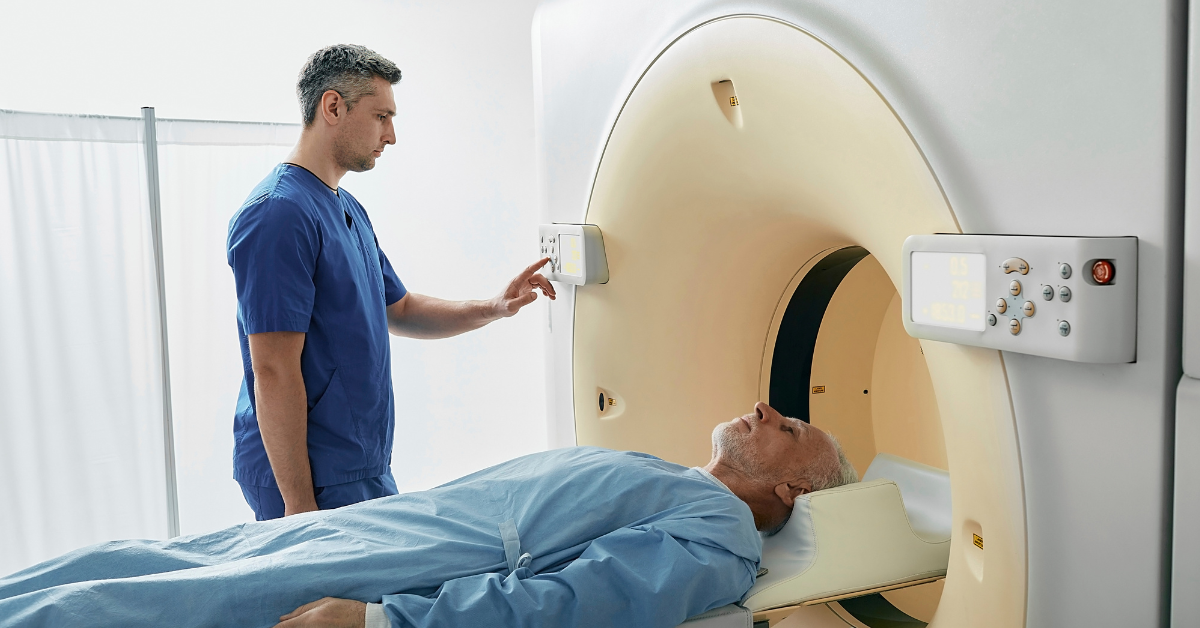If you are worried about your lung health due to smoking history, occupational exposure, or family risk factors, there are proactive steps you can take. Low dose CT lung cancer screening is a quick and non-invasive test that can provide reassurance or identify early signs of disease.
Back to Big Story: Lung Cancer Screening
What Is Low Dose CT Lung Cancer Screening?
Low Dose Computed Tomography (LDCT) uses a lower amount of radiation compared to a standard CT scan. Despite the reduced radiation, it provides highly detailed images of the lungs, allowing doctors to identify nodules, tumours, or other abnormalities.
LDCT is particularly effective for detecting small lung cancers that may not be visible on a standard chest X-ray.
Who Should Consider Screening?
LDCT lung cancer screening is generally recommended for individuals who:
- Are aged between 50 and 80 years.
- Have a history of heavy smoking (for example, 20 or more pack-years)..
- Are current smokers or have quit smoking within the past 15 years.
- Have occupational exposure to asbestos, radon, or other lung carcinogens.
- Have a family history of lung cancer.
Doctors will carefully assess your risk factors before recommending screening.
Benefits of Low Dose CT Screening
- Early Detection: Helps identify cancer at a treatable stage.
- Improved Survival Rates: Patients diagnosed early have more treatment options.
- Detailed Imaging: Detects nodules or abnormalities missed by chest X-rays.
- Non-Invasive: The procedure is painless and completed within minutes.
Other Diagnostic Tests
In addition to LDCT, doctors may recommend further investigations if abnormalities are detected:
- PET-CT Scan – Provides functional and structural information about lung nodules.
- Bronchoscopy – A minimally invasive procedure to examine the airways.
- Lung Biopsy – Removal of a small tissue sample for laboratory analysis.
- Blood Tests – To check for tumour markers and assess overall health.
Ballpark Cost of Low Dose CT Lung Cancer Screening
The cost of LDCT lung cancer screening typically is From S$400 (before GST) in Singapore, depending on the healthcare provider. A package in Malaysia may start at RM500
Important: This is only a ballpark estimate. Actual charges may vary based on the medical centre, additional tests required, and individual health factors.
Insurance and Medisave in Singapore
- Medisave: Singapore Citizens and Permanent Residents can use up to S$300 per annum per patient for outpatient scans, including LDCT, if performed at approved centres.
- Insurance: Coverage may depend on your health insurance plan. Patients are advised to check with their insurance provider regarding claim eligibility.
Lung Cancer Screening You May Consider
Early detection is key to better treatment outcomes. Do not delay your screening if you are at higher risk.

Frequently Asked Questions (FAQs)
1. How long does the LDCT lung cancer screening take?
The scan itself usually takes less than 10 minutes. No special preparation is required.
2. Does the scan expose me to radiation?
Yes, but the radiation dose is significantly lower than a standard CT scan. It is considered safe for individuals at high risk of lung cancer.
3. How often should I undergo screening?
For high-risk individuals, annual screening may be recommended. Your doctor will determine the appropriate schedule based on your risk profile.
4. What happens if an abnormality is found?
Your doctor may suggest follow-up imaging, PET-CT scans, or a biopsy to confirm the diagnosis. Not all abnormalities are cancerous.
5. Can non-smokers undergo LDCT lung cancer screening?
Yes. While most guidelines focus on smokers and ex-smokers, non-smokers with significant exposure to risk factors (such as family history or occupational hazards) may also be advised to undergo screening.
Disclaimer: 365Asia aims to provide accurate and up-to-date information, our contents do not constitute medical or any professional advice. If medical advice is required, please consult a licensed healthcare professional. Patient stories are for general reading. They are based on third-party information and have not been independently verified.




